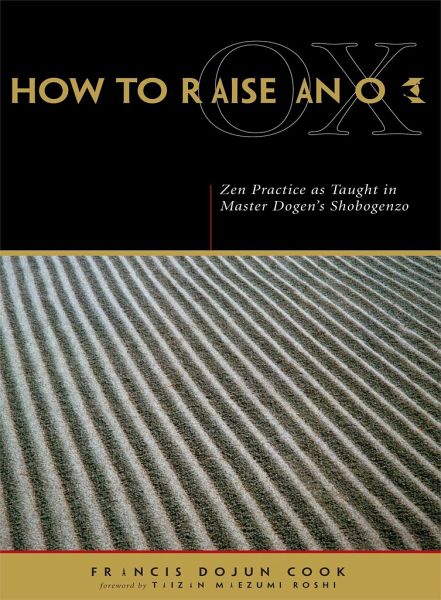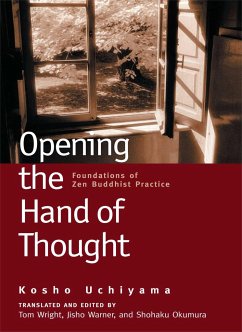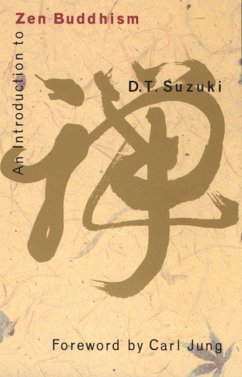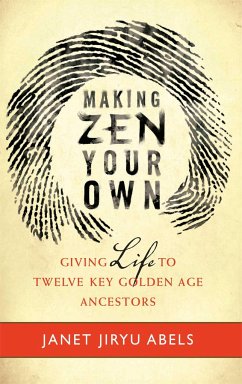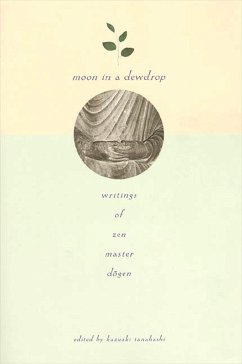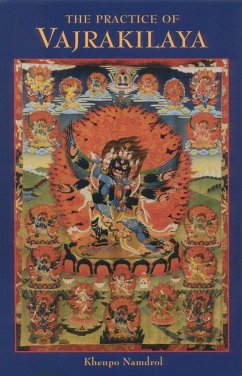Eihei Dogen founded the Japanese Soto School of Zen, and is renowned as one of the world’s most remarkable religious thinkers. As Shakespeare does with English, Dogen utterly transforms the language of Zen, using it in novel and extraordinarily beautiful ways in his voluminous writings. Born in 1200 to an aristocratic background, he was ordained a monk in the Japanese Tendai School in his early teens, but became dissatisfied with Japanese Buddhism. After traveling in China from 1223 to 1227, he returned to introduce to Japan the Soto lineage and the large body of Chan teaching stories, or koans, which he had thoroughly mastered. From 1233 to 1243 he taught near the cultural capital of Kyoto, then in 1243 moved to the remote northern mountains and founded the temple Eiheiji, still one of the headquarter temples of Soto Zen. There, until his illness and death in 1253, he trained a core group of monks who spread Soto Zen throughout the Japanese countryside. Dogen’s writings are noted for their poetic and philosophic depth, though aimed at spiritual practitioners. His two major, massive works are Shobogenzo (True Dharma Eye Treasury) and Eihei Koroku ( Dogen’s Extensive Record). Although not studied for many centuries aside from Soto scholars, in modern times Dogen’s writings, through translation, have become an important part of the spread of Buddhism in the West. Francis Dojun Cook was born and raised in a very small town in upstate New York in 1930. He was lucky to be an ordinary kid with ordinary parents. By means of true grit and luck, he managed to acquire several academic degrees and learn something about Buddhism. More luck in the form of a Fulbright Fellowship enabled him to study in Kyoto, Japan, for a year and a half, where he would have learned more had he not spent so much time admiring temple gardens. He now teaches Buddhism at the University of California, Riverside, and is director of translations at the Institute for Transcultural Studies in Los Angeles. He remains ordinary, but to his credit it can be said that he raised four good kids, has a great love for animals, and cooks pretty well. A sign that at last he is becoming more intelligent is that he became a student of Maezumi Roshi several years ago, the best thing he ever did. He is also the author of Hua-yen Buddhism: The Jewel Net of Indra, and of various articles on Buddhism in scholarly journals. Hakuyu Taizan Maezumi (1931-95) was a Japanese Zen Buddhist teacher and roshi, and lineage holder in the Soto, Rinzai and Harada-Yasutani traditions of Zen. He combined the Rinzai use of koans and the Soto emphasis on shikantaza in his teachings, influenced by his years studying under Hakuun Yasutani in the Harada-Yasutani school. He founded or co-founded several institutions and practice centers, including the Zen Center of Los Angeles, White Plum Asanga, Yokoji Zen Mountain Center, and the Zen Mountain Monastery. Taizan Maezumi left behind twelve Dharma successors, appointed sixty-eight priests and gave Buddhist precepts to more than five hundred practitioners. Along with Zen teachers like Shunryu Suzuki-roshi, Seung Sahn Dae Soen Sa Nim, and Venerable Hsuan Hua, Maezumi greatly influenced the American Zen landscape. Several Dharma Successors of his-including Tetsugen Bernard Glassman, Dennis Merzel, John Daido Loori, Jan Chozen Bays, Gerry Shishin Wick, Charlotte Joko Beck, and William Nyogen Yeo-have gone on to found Zen communities of their own. Maezumi died unexpectedly while visiting Japan in 1995.
